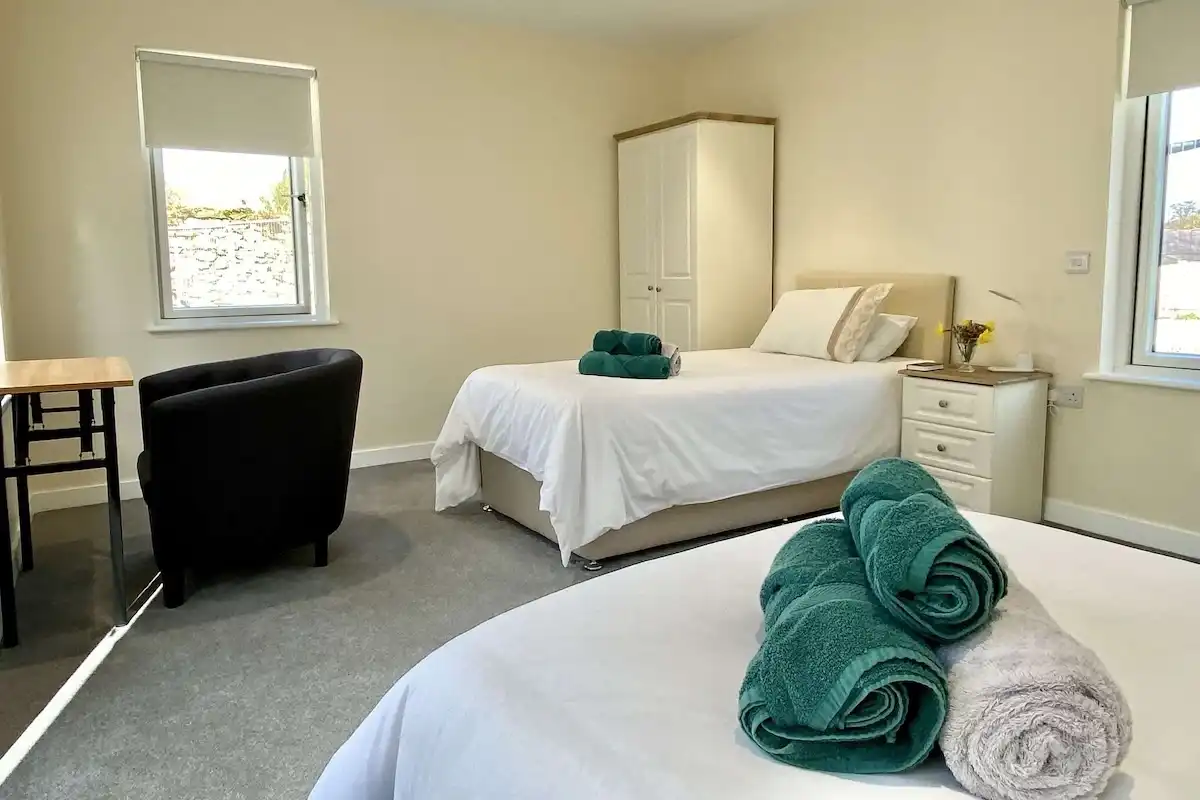
Safe, Medically Managed Detox
Smarmore Castle provides a peaceful, clinically led environment for individuals seeking recovery from prescription painkiller dependency. Our residential opioid detox centre in County Louth, just 45 minutes from Dublin, combines medical expertise with tranquillity. Located in a historic 14th-century castle on 15 private acres, our detox clinic offers full privacy, compassionate care, and continuous support in a restorative countryside setting.
As Ireland’s only private, family-run opioid addiction treatment clinic, we combine over 35 years of Castle Health experience with ISO 9001 and CHKS-accredited clinical standards. For those exploring opioid detoxification or wondering how long it takes to detox from opioid medication, a medical opioid detox in a safe residential setting can offer stability and professional care.
If you’re considering an effective opioid detox, we encourage you to call Smarmore Castle on 041 986 5080 to learn more about our private residential withdrawal treatment options.
What is Opioid Detoxification?
Opioid detoxification is the biological process through which the body clears opioid medications, such as oxycodone or morphine, after dependency has developed. During this stage, the body adjusts to the absence of these substances, often resulting in opioid withdrawal symptoms like muscle pain, sweating, anxiety, and insomnia as chemical balance is gradually restored.
Professional support is highly recommended during detox from opioid medication, as withdrawal can be both physically and emotionally distressing. A medical opioid detox offers 24-hour supervision, symptom management, and safe medication tapering. This approach helps prevent complications, supports comfort, and provides a stable foundation for ongoing therapy and recovery work.
What is an Inpatient Medically Managed Opioid Detox?
A medically managed opioid detox is the safest way to withdraw from opioid medication under professional oversight. Clinical teams monitor patients 24/7, using prescribed medication to reduce severe withdrawal symptoms. This structured approach minimises health risks and ensures that detox takes place in a controlled, supportive medical environment.
From an inpatient perspective, opioid medical detox treatment provides access to ongoing care, psychological support, and immediate medical assistance if complications arise. Patients benefit from a calm, structured setting where both physical stabilisation and emotional recovery are prioritised – creating the strongest possible foundation for long-term opioid addiction treatment and rehabilitation.

Your Recovery Starts Here
Effective Opioid Withdrawal and Recovery Outcomes
An effective opioid detox combines continuous medical management, evidence-based therapy, and relapse prevention planning. Medical professionals manage withdrawal symptoms safely, while integrated psychological addiction therapies address cravings and behavioural patterns. This combined approach supports both physical stabilisation and emotional recovery, helping patients transition smoothly into long-term opioid rehabilitation treatment.
Smarmore Castle designs structured and personalised opioid addiction detox programmes that incorporate medical stabilisation, therapy, and relapse prevention strategies. Each withdrawal treatment plan is tailored to the patient’s medical history, medication use, and emotional needs, ensuring the best possible foundation for ongoing recovery and sustainable well-being.
Why Choose Smarmore Castle For Painkiller Rehab?
Smarmore Castle provides a safe and structured environment for those beginning recovery from opioid medication or prescription painkiller dependence. Our inpatient detox clinic offers professional medical oversight, comfort, and complete privacy, helping patients stabilise physically and emotionally during the early stages of opioid withdrawal and rehabilitation.
- 24-hour medical care supporting safe withdrawal from opiate or prescription painkillers.
- Inpatient detox facilities providing privacy, structure, and emotional stability.
- Gradual, clinically managed tapering to minimise withdrawal distress.
- Access to addiction specialists experienced in heroin and painkiller dependence.
- Holistic and therapeutic care promoting both physical and mental restoration.
To find out more about our private opioid detox and rehabilitation services, contact Smarmore Castle today on 041 986 5080. Our admissions team can guide you through our confidential assessment and help you take the first step towards recovery.

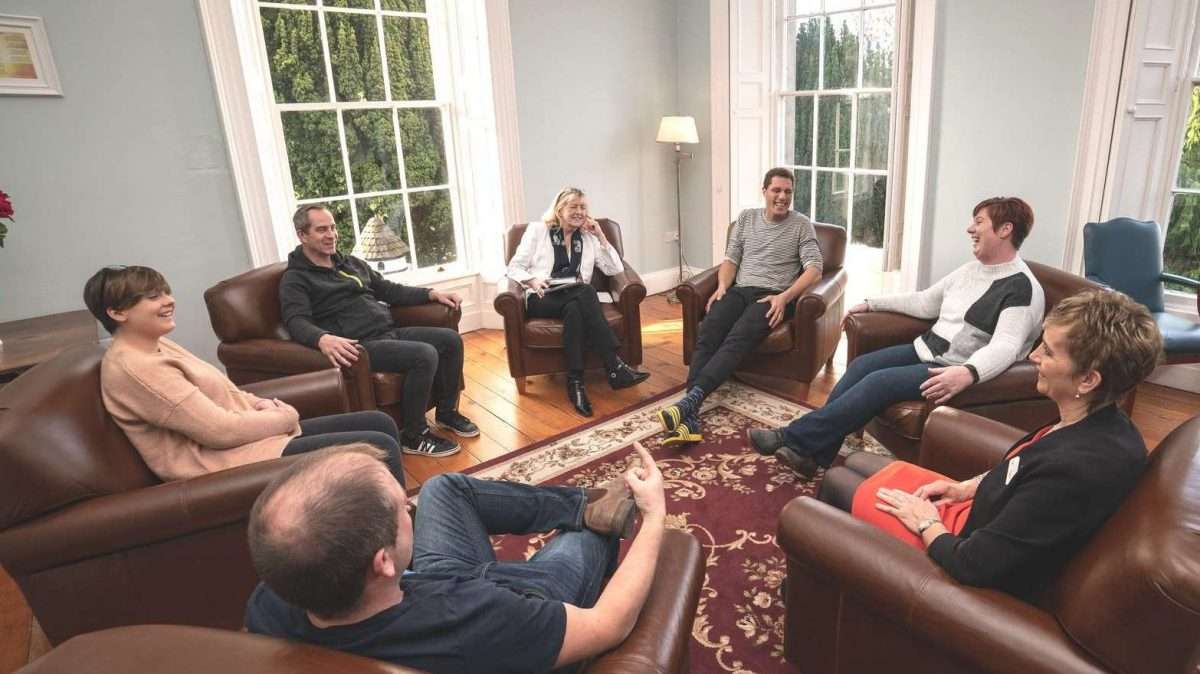
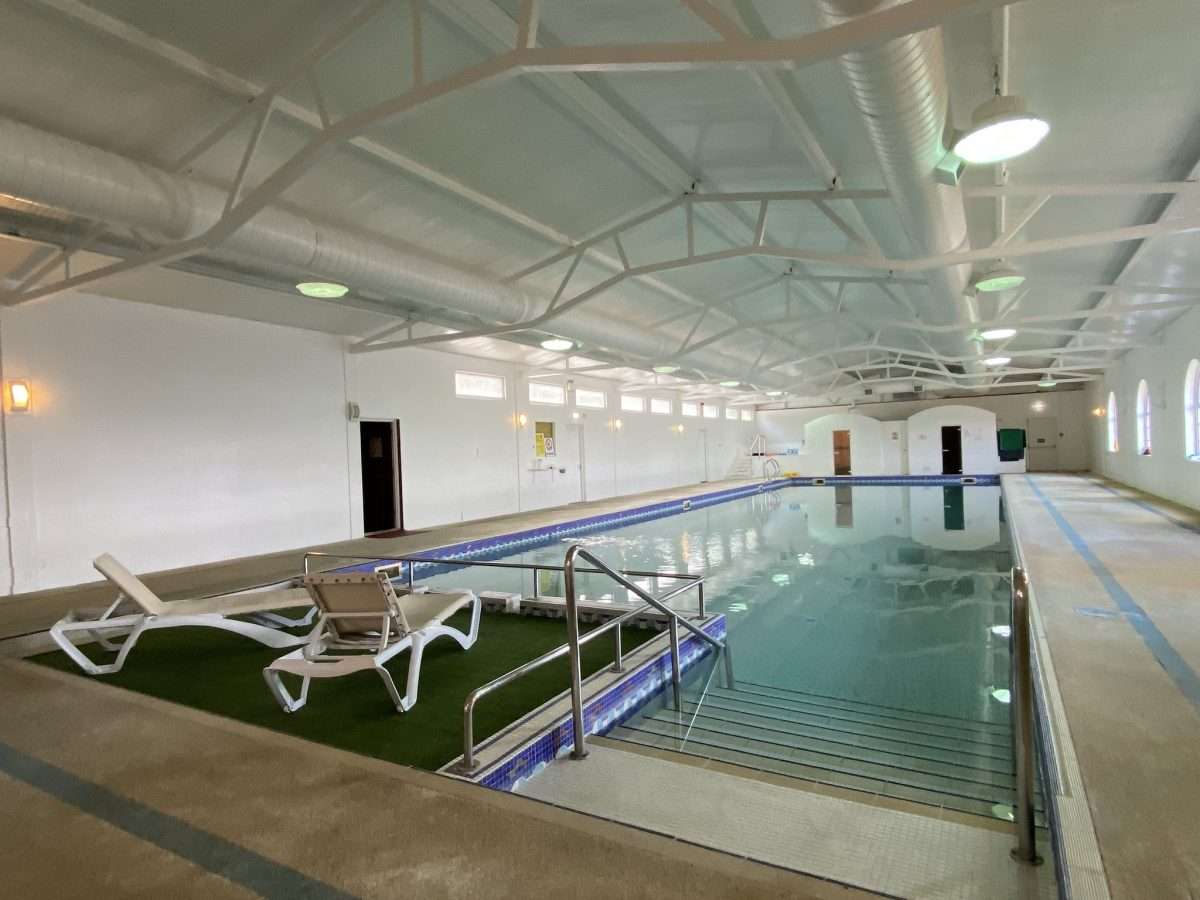

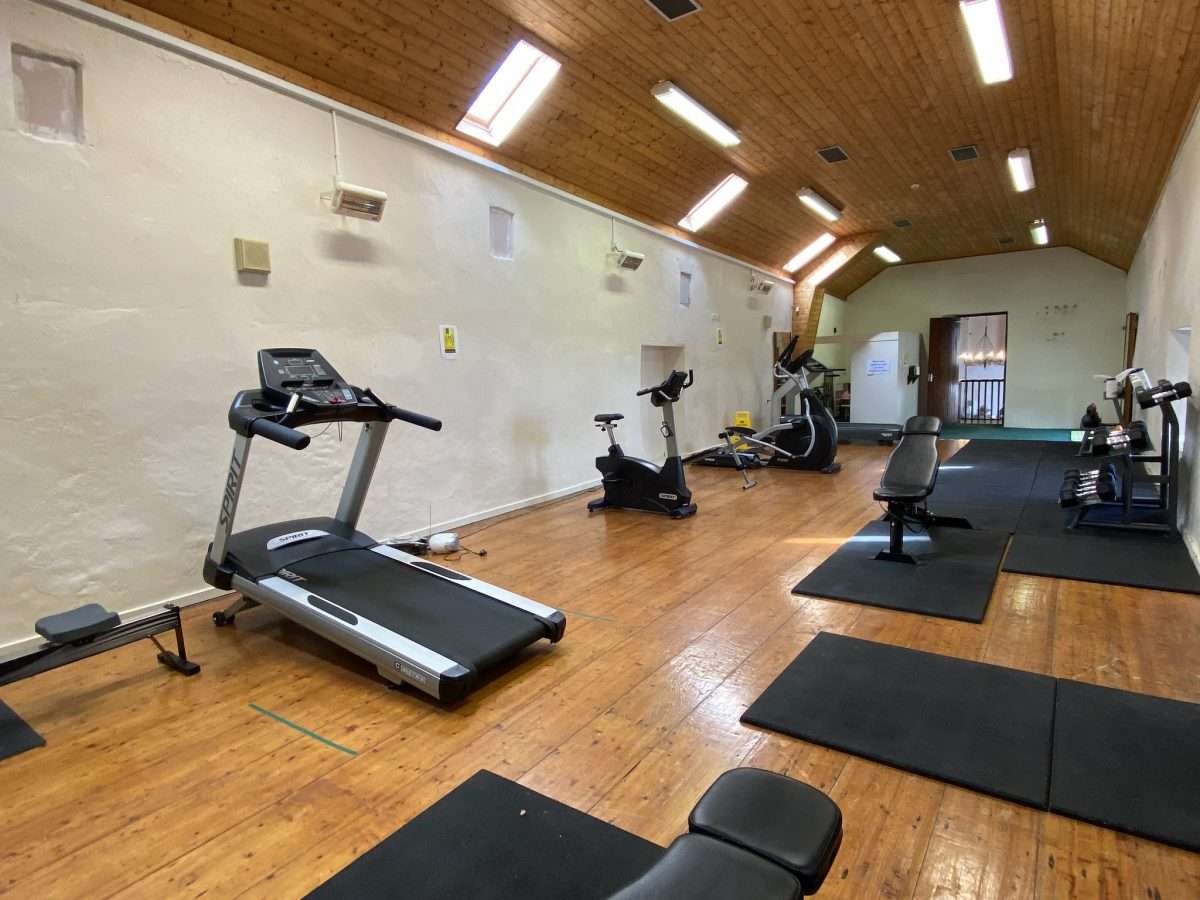



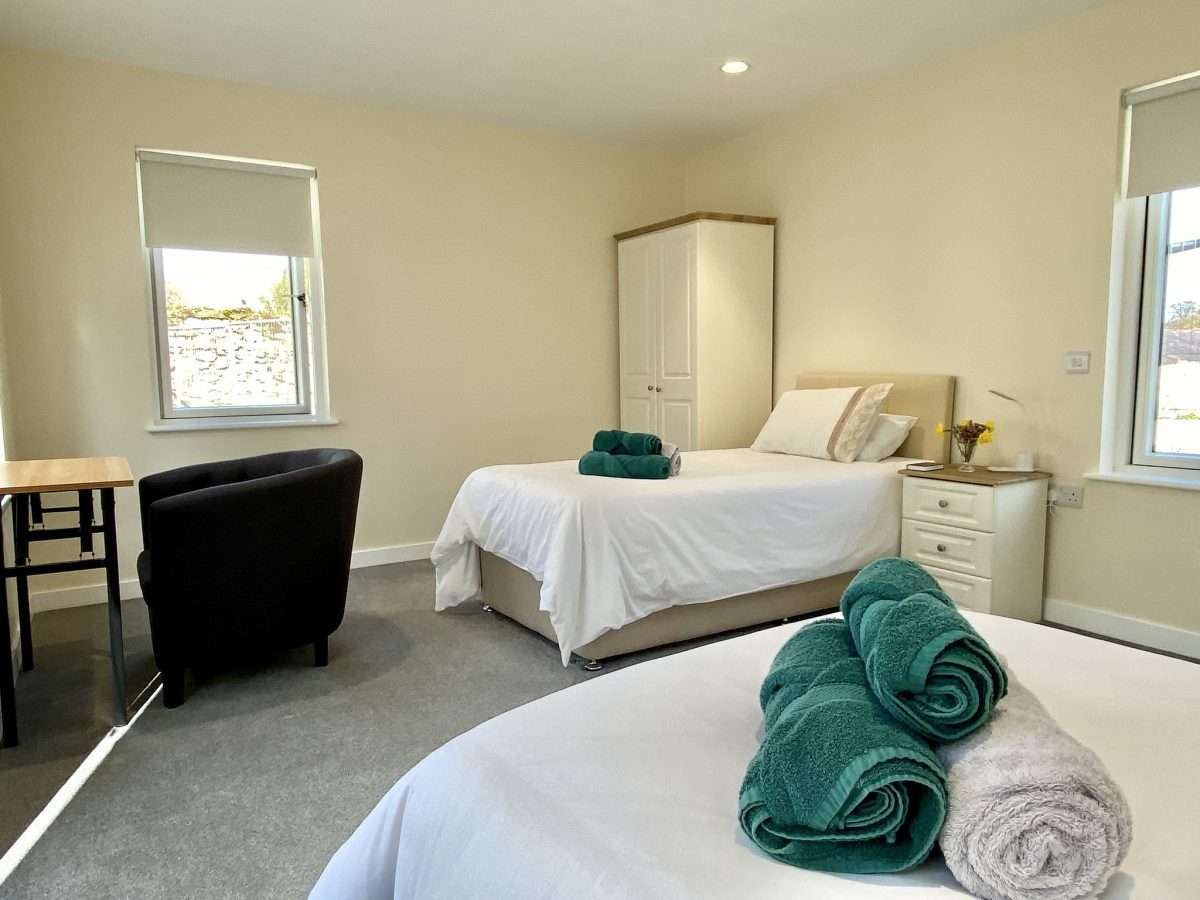
Types of Medically Managed Synthetic Drug Detox Programmes
A medical opioid detox can vary depending on the type of substance, the level of dependency, and the patient’s overall health. Opioid withdrawal treatment plans may include gradual tapering, medication-assisted stabilisation, or a combination of medical and psychological therapies. Residential settings offer privacy, structure, and access to professional support throughout recovery.
-
Medically Supervised Opioid Detox in Private Residential Settings
A medically managed opioid detox provides continuous clinical monitoring to manage withdrawal symptoms safely and effectively. Medical professionals oversee the process, adjusting medication and treatment according to each patient’s needs while offering emotional reassurance and guidance throughout withdrawal.
At Smarmore Castle, our inpatient opioid detox programmes combine clinical expertise with compassionate care. We provide a calm, structured environment where patients can safely withdraw under supervision while receiving therapeutic and psychological support to begin their recovery journey.
-
Gradual Prescription Painkiller Withdrawal with Clinical Oversight
Gradual withdrawal is often the preferred approach when detoxing from prescription pain relief medications. Controlled opioid tapering allows the body to adapt to lower doses over time, reducing discomfort and the risk of severe withdrawal symptoms while promoting safer long-term recovery.
During this process, patients are carefully monitored to ensure their physical and mental well-being remains stable. Clinicians adjust tapering schedules and provide appropriate medical and psychological support to maintain safety and comfort throughout opioid detox.
-
Inpatient Opiate Detox Combining Therapy and Medical Support
An inpatient opioid detox integrates medical stabilisation with therapy to address both the physical and emotional effects of dependence. This comprehensive approach helps patients develop coping mechanisms while managing cravings and stress in a controlled environment.
At Smarmore Castle, we combine structured medical care with evidence-based therapy such as CBT and trauma-informed methods. This blend of medical and psychological support offers a balanced recovery process that helps prepare patients for lasting opioid rehabilitation.
-
Medication-Assisted Detox Using Buprenorphine or Methadone
Some individuals benefit from medication-assisted detox using stabilising agents such as buprenorphine or methadone. The medications reduce cravings and opioid withdrawal discomfort, allowing patients to focus on recovery without the physical strain of unmanaged symptoms.
This method is clinically managed, with doses adjusted over time to achieve safe, controlled withdrawal. It is particularly beneficial for people with long-term opioid dependence or previous unsuccessful detox attempts.
-
Holistic Painkiller Detox with Mindfulness and Nutritional Support
Holistic approaches complement medical detox by strengthening both the body and mind during recovery. Practices such as mindfulness and balanced nutrition help reduce anxiety, restore energy levels, and improve sleep throughout the opioid detox process.
Smarmore Castle integrates holistic care into our opioid detox programmes, offering activities like meditation, aquatherapy, and art therapy. This whole-person approach supports emotional balance, physical restoration, and a strong foundation to support your long-term well-being during recovery.
-
Short-Term and Extended Opioid Withdrawal Programmes
The duration of an opioid detox programme depends on the severity of dependence and the substance involved. Short-term opioid detox may focus on stabilisation and immediate withdrawal, while extended programmes address both detox and rehabilitation for sustained recovery.
Medical professionals determine the most suitable plan based on a patient’s progress, history, and health needs. Extended opioid detox programmes often include additional therapy and relapse prevention planning to promote long-term sobriety.
-
Addiction Counselling and Support During Morphine-Based Detox
Addiction counselling plays a vital role in opioid and morphine-based detox, helping patients understand triggers, manage cravings, and develop healthier coping strategies. Counselling can take place in individual or group settings for ongoing motivation and support.
At Smarmore Castle, our opioid detox treatment combines addiction counselling, peer support, and psychological therapies with clinical detox management. This integrated method promotes emotional resilience and prepares patients for successful reintegration and continued recovery.
-
Countryside Detox Facilities for Discreet Heroin Recovery
Many individuals benefit from detoxing in private, countryside locations away from urban distractions. Secluded settings encourage focus, calm, and emotional reflection during early recovery from heroin or prescription painkiller dependence.
Discreet opioid detoxification facilities provide a tranquil atmosphere with access to medical staff, therapists, and wellness resources. A peaceful environment supports healing and offers patients the privacy needed to rebuild confidence and stability.
Popular Locations in Ireland for Accredited Opiate Drug Detoxification
Across the Republic of Ireland, people seeking opioid detox treatment often explore services in major cities such as Dublin, Cork, and Limerick. Areas like the Dublin City Centre, Rathmines, and Blackrock provide convenient access to addiction support and transport links, while southern regions such as Ballincollig and Douglas in Cork also offer accessibility for addiction recovery care.
In the west, recovery and opioid withdrawal management support are increasingly available around Galway, Waterford, and Kilkenny. Suburban areas like Salthill, Ferrybank, and Callan provide quieter, community-based addiction treatment environments where patients can focus on recovery while remaining connected to local healthcare and mental health resources.
If you’re considering private residential opioid detox treatment, Smarmore Castle offers a peaceful and clinically supervised setting just a short drive from Dublin. Our opioid withdrawal facility combines medical expertise, privacy, and holistic care, making it an excellent choice for those seeking structured, accredited support for detox from opioid medications.
Find Us
Smarmore Castle Clinic, Near Ardee, County Louth, Ireland A92 YY22
Free Prescription Drug Addiction Assessments
Smarmore Castle provides confidential opioid addiction assessments as the first step in our admissions process. The free assessments allow our clinical team to understand each patient’s history, current medication use, and physical or emotional needs, ensuring that care begins with compassion and professional guidance.
Following assessment, Smarmore Castle develops a tailored opioid withdrawal treatment plan that reflects each patient’s unique circumstances, including their level of dependence, health condition, and recovery goals. Our team combines medical detox, therapy, and ongoing relapse prevention and support to create a structured, effective path toward long-term healing and sustained sobriety.
Book Your Free Opioid Addiction Assessment Today
Speak with a member of our intake team, who will provide an assessment before you begin treatment.
How Much Do Residential Opioid Detoxification Programmes Cost in Ireland?
The cost of residential opioid detoxification in Ireland typically ranges from €360 to €1,700 per day or approximately €2,500 to €12,000+ per week, depending on the level of medical support and services provided. Higher-end opioid withdrawal clinics may charge more for comprehensive care, privacy, and luxury facilities.
The cost of medically managed detox centres for opioid addiction varies based on each patient’s treatment requirements, the duration of stay, and the type of accommodation chosen. Personalised care, 24-hour supervision, and access to additional therapies or wellness facilities can influence overall pricing, but these elements often contribute to safer and more effective recovery outcomes.
Does Health Insurance Cover Opioid Detox in Ireland?
Yes, some health insurance providers may cover opioid detox treatment in Ireland, though coverage depends on your specific insurer and policy. It’s important to review your plan details and confirm the level of support offered for inpatient opioid detox or related rehabilitation services before starting treatment.
If your insurer approves inpatient opioid detox at our facility, Smarmore Castle accepts coverage from several major providers, including VHI Healthcare, St Paul’s Garda Medical Aid Society, and Bupa Global. Our admissions team can assist in guiding you through a seamless, confidential intake process.

Contact Smarmore Castle’s Medical Detox Centre
Smarmore Castle is a private residential opioid detox and rehabilitation centre located in County Louth, just 45 minutes from Dublin. Set within a 14th-century castle surrounded by 15 acres of serene countryside, our clinic provides a safe, structured, and compassionate environment for individuals beginning their recovery journey from opioid dependency.
If you’d like to learn more about our medically managed drug addiction treatment programmes, call Smarmore Castle on the number below. Our 24-hour admissions team offers confidential guidance and can help you take the first step toward recovery with clinical care, dignity, and ongoing emotional support.
How Long Does it Take to Detox From Opioid Medication?
The duration of opioid detoxification can vary widely depending on several factors, including the type of opioid medication, duration of use, and overall health. In general, prescription painkiller detox may take anywhere from five days to several weeks, with symptoms often peaking within the first few days before gradually improving.
Since every patient’s experience is unique, only a qualified professional can accurately determine how long it takes to detox from opioid medication. At Smarmore Castle, our clinical team conducts thorough assessments to design tailored medical opioid detox plans, ensuring each patient receives the right level of care for a safe and effective withdrawal process.
Can You Detox from Opiate Painkillers at Home?
Attempting to detox from opioid medication at home is generally not recommended due to the potential health risks and unpredictable withdrawal symptoms. Without medical management, individuals may experience severe discomfort, dehydration, or relapse, and in some cases, opioid withdrawal can lead to dangerous complications requiring urgent care.
An inpatient medically managed opioid detox is far safer, as it provides 24-hour monitoring and access to trained clinicians. In a professional setting, doctors can tailor medication and therapy to each patient’s needs, creating a structured opioid rehab programme that promotes both physical recovery and long-term emotional stability.
Are You Looking for Opioid Detox Near You?
Find out more about opioid misuse treatment near Dublin by contacting a member of our team.
Advantages of Live-in Narcotic Drug Withdrawal with a Structured Treatment Plan
Choosing a residential opioid detox programme offers a safe, supportive setting for withdrawal and recovery. Inpatient opioid detox care combines medical oversight, psychological support, and therapeutic structure to help patients stabilise physically and emotionally. This approach reduces health risks while promoting a sustained, long-term recovery pathway.
- 24-hour monitoring to manage opioid withdrawal symptoms safely: Continuous oversight ensures any physical or psychological complications are immediately addressed, reducing risks and enhancing patient comfort throughout the opioid withdrawal process.
- Gradual opioid tapering protocols reduce dependence and help minimise withdrawal effects: Clinicians safely lower medication doses over time, allowing the body to adjust and reducing the intensity of opioid withdrawal symptoms.
- Medication-assisted support helps ease cravings and stabilise mood during opioid detox: Prescribed medications are used carefully to manage cravings, anxiety, and mood swings, supporting smoother physical and emotional stabilisation.
- Access to addiction specialists trained in heroin and prescription opioid treatment: Skilled professionals guide patients through each stage of recovery, offering targeted medical and therapeutic expertise for lasting improvement.
- Psychological therapies address emotional triggers and trauma linked to drug misuse: Integrated therapy helps uncover the root causes of opioid addiction, promoting emotional healing and relapse prevention.
- Holistic approaches, including mindfulness and nutrition, restore balance and physical health: Complementary care such as yoga, meditation, and tailored nutrition strengthens overall well-being during opioid detox.
- Inpatient opioid detox environment removes access to substances, promoting focus and commitment: A controlled, drug-free space fosters concentration on recovery, eliminating external triggers or relapse risks.
- Post-detox transition into long-term prescription drug rehab supports relapse prevention and sustained recovery: Continued therapy, aftercare planning, and follow-up support help maintain sobriety and strengthen long-term recovery outcomes.

You Don’t Have to Face Opioid Addiction Alone.
At Smarmore Castle, thousands have found support, strength, and a new way forward. We’re here to help you take the first step.
Related Guides on Substance Detox Treatment in Ireland
Alcohol Detox | Cocaine Detox | Heroin Detox | Opioid Detox | Prescription Drug Detox | Oxycodone Detox | OxyContin Detox | Valium Detox | Codeine Detox | Morphine Detox | Xanax Detox
Best Ways to Detox from Opioids
The best way to detox from opioids depends on each patient’s unique medical and psychological needs. There’s no single approach that works for everyone. The most effective opioid addiction treatment plans are those created and monitored by qualified professionals who can safely manage withdrawal and provide structured, evidence-based recovery support.
- Seek an accredited opioid detox clinic with experienced medical staff: Choose a withdrawal facility with proven expertise in addiction medicine to ensure safe detox and ongoing professional guidance.
- Choose inpatient opioid detox treatment for 24/7 care and professional symptom monitoring: Around-the-clock oversight provides immediate support and intervention during challenging stages of opioid withdrawal.
- Follow a gradual opioid tapering plan guided by clinical specialists: Controlled dose reduction helps minimise discomfort and allows the body to adjust safely over time.
- Engage in addiction therapy to address cravings, triggers, and emotional dependency: Therapeutic sessions promote emotional resilience and prevent relapse by identifying and managing underlying causes of prescription painkiller addiction.
- Focus on nutrition, rest, and post-detox relapse prevention strategies: Balanced meals, restorative sleep, and structured continuing care plans support sustained recovery and long-term health.
Get Help Today
-
Opioid Drug Addiction Statistics in the Republic of Ireland
- In 2022, it was estimated that there were about 19,460 people in Ireland with problematic opioid use.
- In Ireland prisons (2012–2020), prescribing rates of opioids, benzodiazepines, Z-drugs and gabapentinoids were tracked per 1,000 prison population.
- From a historical report, in 2015, the drug-induced mortality rate (ages 15–64) in Ireland was 70 deaths per million, more than three times the European average; opioids were the most commonly associated class of substance.
- A study on the harms of prescription drug misuse in Ireland notes significant risks tied to polydrug use involving prescription medicines.
- Among people who reported non-medical use of prescription medication in Ireland, nearly 14% met criteria for misuse or dependence.